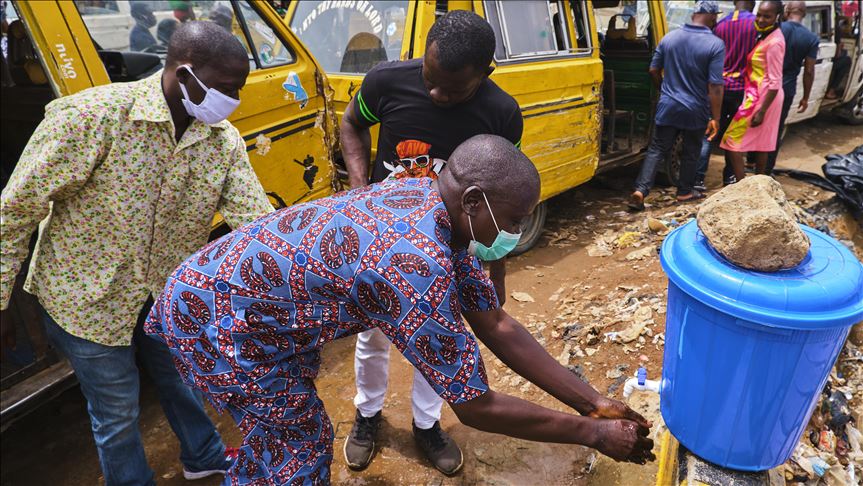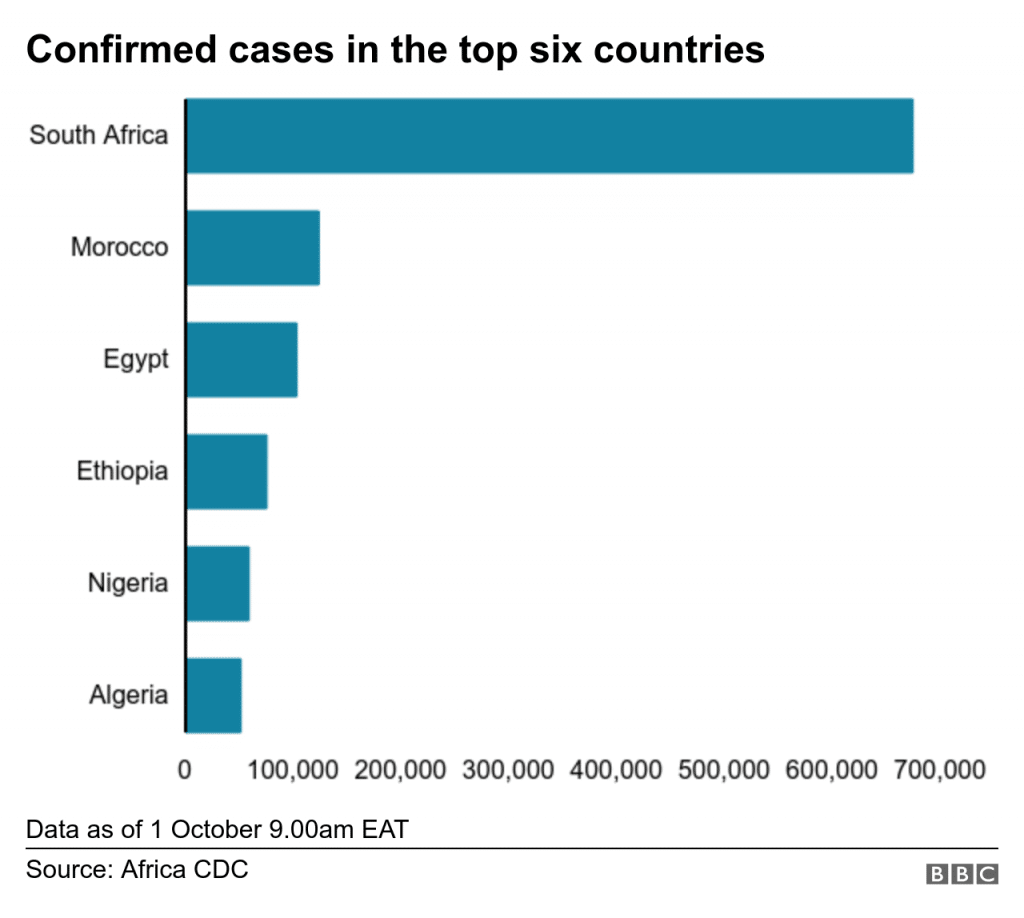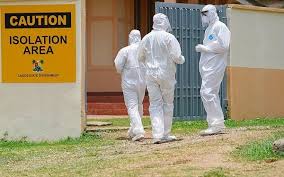The World Health Organization (WHO) stated that Covid-19 in Africa may be slowing down but warns governments not to lay back as restrictions are relaxed.
Over the past four weeks, there has been an average 1.7% fall in the number of weekly new cases being reported, according to the Africa Centres for Disease Control (CDC).

But the CDC warns that it is not over in Africa.
“I don’t think we are over the first wave yet, we have not yet hit the bottom at all,” says the CDC’s John Nkengasong.
And there are still some countries seeing rising case numbers.
The North Africa region recorded a 14% increase in cases over the past four weeks, the only region reporting an increase in new cases.
The rise in cases has largely been driven by an increase in cases in Morocco, Tunisia and Libya.
Morocco has been experiencing a sustained increase in new cases and has had the highest number of new cases on the continent over the past three weeks.
Tunisia and Libya were among the five countries with the highest number of new cases over the past week.
The others countries reporting high number of new cases are South Africa and Ethiopia.

The global humanitarian relief body, the International Rescue Committee, says it believes the true scale of the pandemic may be hidden because of a lack of testing and issues with data.
And the WHO says changes in testing capacity and strategy can also affect numbers.
One example is Kenya where reported case numbers have been dropping for more than a month now, after the country changed its testing strategy to focus on higher-risk groups only.
Others like Ethiopia have boosted testing. There was a steady increase in case numbers since mid-June, but now new cases have been on a decline.
South Africa has the highest recorded number of total cases and reported deaths in Africa, and the tenth highest number of cases in the world.
Daily reported numbers and hospital admissions have been falling for close on two months.
Health minister Zwelini Mkhize says they have confirmed the country is now officially past the surge.
There is however still some concern that the country could be missing some cases.
South Africa’s National Institute for Communicable Diseases says changes in testing could have contributed to the drop in the number of confirmed cases.
And research from the South African Medical Research Council (SAMRC) indicates the number of people who have died from the virus could be much higher than reported.
It says excess deaths, which is the difference between deaths over a particular period and the historical average, rose by 17,000 – that’s a 59% increase compared with previous years.
Morocco has now overtaken Egypt and has the second highest number of cases, although Egypt is still the second in terms of deaths recorded so far.
Egypt has the third highest number of cases, followed by Ethiopia and Nigeria.
The reported death rate per capita has been low compared with other parts of the world, despite the poor health infrastructure in many African countries.
The low death rate per capita compared with other parts of the world may be partly due to relatively young population in Africa say the WHO – more than 60% under the age of 25.
Covid-19 is known to have a higher mortality rate for older age groups, and among people health problems like obesity and type 2 diabetes which are also less common in Africa.
Experts also say expertise in epidemic control from tackling other outbreaks, cross-immunity from other coronaviruses, low travel and outdoor living could also be contributing to Africa coping better.
In terms of what proportion of people who get Covid-19 go on to die, there were 12 African countries with rates comparable with or higher than the global average rate of 3% on 1 October.
Testing in Africa
Ten countries account for close to 80% of the total tests conducted – South Africa, Morocco, Ethiopia, Egypt, Ghana, Kenya, Nigeria, Rwanda, Uganda and Mauritius.

There are wide variations in testing rates, with South Africa doing the most and Nigeria doing relatively few per capita, according to Our World in Data, a UK-based project which collates Covid-19 information.
By 30 September, South Africa had done 71 tests per 1,000 people, but that compares with 305 in the UK by then, and the US’s 342 as of 27 September.
Nigeria had carried out just 2.5 tests per 1,000 people by 29 September, while Kenya had done 10 by 28 September.
About half of the countries on the continent have a ratio lower than the benchmark of doing at least 10 tests for every positive case recommended by the Africa CDC.
And in some countries, there’s insufficient data available on testing.

